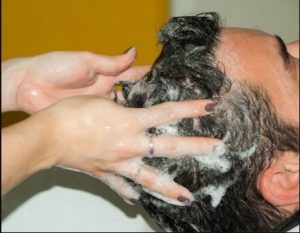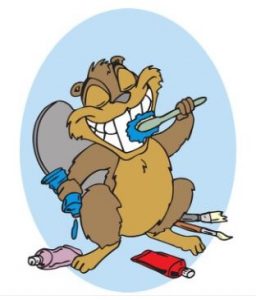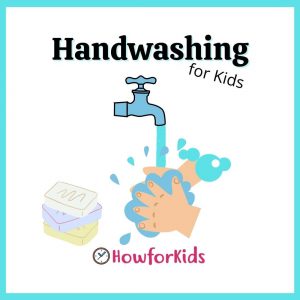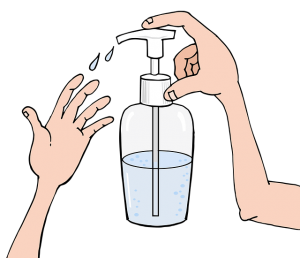Personal Hygiene Habits for Elementary and Preschool Children
Table of Contents
Hygiene is the act of being clean. Washing your body to remove dirt and germs, brushing your teeth to keep them clean, shaving, using the toilet properly, and dressing properly are examples of hygiene habits. Proper hygiene is often taught to children at a young age, so it becomes a habit. People who don’t have good hygiene can smell bad, lose their teeth, or get sick.

Hygiene Habits for Good Health
Personal hygiene is often defined as the cleanliness of the body and proper maintenance of personal appearance. This normally includes all parts of the body and clothing. Children do not naturally know the importance of personal hygiene and how to maintain it. They learn from their family and often need help until they get older and are able to do it on their own.
How do I Teach my Child Good Hygiene?
Children with poor personal hygiene can be ridiculed by their peers. They will be teased for being dirty, for having dirty clothes or greasy hair. This can damage their self-esteem and cause them to become even more neglected. Adults will have a bad impression of the child and may even suspect parental negligence if a young child can’t rely on their parents to help keep them clean.
Read Also: The Solar System Easy for Kids
What are the Hygienic Habits for Children and Parents
Keeping your body clean is an important part of staying healthy and helping you feel better about yourself.
Caring about your appearance is vital to your self-esteem (what you think of yourself). Let’s see some ideas to look and feel good. By the way, you don’t need to wear last season’s jersey to look good. There are other things you can do that are much more important to your image.
Having good hygiene habits is more than just washing your hands. Teaching children to have a healthy hygiene routine when they are young can create habits that last forever. Use this guide and teach your children good hygiene habits.
Wash your Hair

Most young children can wash their hair two to three times a week. Washing your hair too often can dry out the scalp, making it more prone to dandruff.
When boys enter their teens, the hormonal effects of puberty kick in, sometimes making their hair greasy. Shampooing your hair may be necessary at least once in a while.
Bath
Young children either love to bathe or they hate it. On no-shampoo days, you can make bathing fun. Put your toddler in the tub and give them a towel, a basin of hot soapy water, and a bowl of hot water to rinse off. Make sure he or she knows how to put the sponge into the soapy water first before rubbing a part of her body and then into the water to rinse before repeating.
What is the Best Oral Care Routine?
Good oral hygiene should be part of a child’s daily routine. In fact, parents should be concerned with oral hygiene from the moment the child has their first tooth.
By keeping your gums and teeth clean, you can help prevent a wide variety of health problems in children and adults, including bad breath, cavities, and heart problems later on.
Once your child is old enough, you can monitor the way they practice oral hygiene. You should have them brush their teeth for at least 2 minutes twice a day. Also, encourage your child to brush their teeth after every meal to prevent bacteria growth and prevent cavities. Older children can carry a toothbrush kit in their backpacks so they can brush them at school.

Brushing Your Teeth: Good Habits for Kindergarten
Along with brushing, flossing and a mouthwash is also important.
Properly brushing and flossing your teeth is a learned skill that can only be improved with practice. It is the duty of parents to instill this important hygiene habit at an early age.
At the same time, you have to make sure that your child does not eat too much sugary food, which has a detrimental effect on the teeth.
If your child is not taking good care of their teeth, speak up. Take them to the dentist if necessary. A dentist can help teach your child the consequences of bad breath, the symptoms of dental problems, and how rotten teeth can jeopardize their appearance and future career options.
When and How to Wash your Hands
Hand washing is a key part of good hygiene. Washing them before and after meals, after playing on the floor or with animals, and after being in contact with someone who is sick is the best way to kill germs.

Teach your child the importance of scrubbing their hands with soap during the time it takes to sing “Happy Birthday” twice. Hand sanitizers are not as effective as soap and water, use them only in a pinch.
The Nails
Nails are a breeding ground for bacteria. Germs that live under your fingernails can easily transfer to your eyes, nose, and mouth. Invest in a good nail brush and help your child clean dirt from under their nails before going to sleep. Cutting your nails weekly will help get rid of dirt and reduce the possibility of ingrown toenails.
In the Toilet
Once young children are fully toilet trained, you will need to focus on habits to keep all parts clean. Teach them to clean themselves very well and to wash their hands when they are done. These habits will help minimize irritation and keep infections at bay. In the summer, it’s also important that they wear sunscreen applied several times throughout the day, especially because a child’s skin is more sensitive than most adults’ skin.
Skin Care Tips for Children
Young children need parents to help them with skin care. Skin spots like the following are common at this age:
- Rashes
- Lumps
- Scabs
Before dressing your child after a bath, look up and down their skin to make sure there are no stains that need attention.
Teen Skin Care: Why is Personal Hygiene Important?

Like hair, teenage skin becomes oilier with puberty. There are many anti-acne medications on the market, but people sometimes overlook the benefits of simply washing with soap and water. Teach your teen to wash their face two to three times a day and to avoid touching pimples.
When it comes to makeup, make sure your kids know that sharing it can cause infections and that going to sleep with makeup on can cause skin damage.
Underarm Care Routine
Washing the armpits and applying deodorant is a ritual that many teens hate or ignore. Sweat starts to smell bad at different ages, but it usually starts around the age of 9 or 10. Talk to your child about the importance of washing the armpits, especially after playing sports. Depending on how strong your child’s sweat is, you’ll want to choose an antiperspirant, not just a deodorant. Deodorants control bacteria and add aroma, while an antiperspirant also helps minimize sweat.
Menstrual Cycle
Once girls start wearing makeup and menstruating, some specific hygiene habits are necessary. Encourage your daughter to keep track of her cycle so that she knows when to have feminine hygiene products ready. Periods can be irregular for the first two years, so help her learn to be prepared.
Teaching your Child Good Hygiene Habits
In addition to personal hygiene, it is important to teach children to keep the house clean when they are at home.
- Keeping the house clean inside and out is a healthy habit that everyone should follow, including children. This is an important step towards a clean and healthy society.
- Keep your belongings, like toys and books, in their place.
- Do not leave things on the floor of the house or in public places. Disposable products should only be thrown away in a residue container.
- Eat cleanly and without splashing.
- Put the plate or glass in the sink after every meal, wash your hands.
- Put dirty clothes in the basket and always wear clean clothes.
- Don’t eat on the floor. Especially if there are animals at home.
- The bed is only for sleeping. Children tend to do all sorts of things, besides sleep, in bed, which parents should discourage from the start.
How to wash your hands correctly

Poor personal hygiene can harm children’s health in several ways. Dirty kids are more prone to illness, either from dirt itself or from exposure to flu germs and other illnesses. Tooth decay and gum disease are caused by poor oral hygiene and can lead to premature tooth loss.
Fun Facts about Hygiene Habits
• “Hygiene” comes from the word Hygieia, the Greek goddess of health, cleanliness, and the moon.
• A body that is too clean increases the risk of asthma and eczema.
• Jain monks (a religious group in India) are forbidden to wash any part of the body except the hands and feet, believing that bathing can endanger the lives of millions of microorganisms.
• Soap has that name because it comes from the word sapone from the mythological Mount Sapo. The ashes of the wood and fats of animal sacrifices that were made there were cleaned in the Tiber River, they created a cleaning agent (silt) that was excellent for cleaning clothes, as it made foam that carried dirt.
• More than 1,000 species of bacteria live in the human body.
• Ancient Egyptians and Aztecs rubbed urine on their skin to treat cuts and burns. Urea, a chemical present in urine. It is known to kill fungi and bacteria.
• In a small victory for cleanliness, the medieval King of England Henry IV required his knights to bathe at least once in his life – during his ritual of chivalric ceremonies.
• A seventh-year student in Florida, USA, recently won his school’s science fair for showing that there are more bacteria in ice machines at fast food restaurants than in the toilet.
• There is no such thing as the “five second rule” when food is dropped on the ground. Bacteria take no more than half a second to contaminate food.
• The first toothbrush, made from bristles of Siberian pig hair attached to a handle made of cattle bones, was invented in ancient China in 1498. But toothbrushing did not become routine in the rest of the world until imposed on soldiers during World War II.
• NASA recently spent $23.4 million designing a space shuttle toilet that would defy zero gravity with a suction technology of 850 liters of airflow per minute.
• In 1843, Oliver Wendell Holmes Sr. campaigned for basic sanitation in hospitals. But this clashed with the social ideas of the time and was ignored. Charles Meigs, an American obstetrician, said, “Doctors are gentlemen and gentlemen’s hands are clean.”
• Up to a quarter of all women who give birth in hospitals in Europe and America in the 17th to the 19th century died of puerperal fever, an infection spread by poorly hygienic nurses and doctors.
• Research from the University of Arizona found that TV remotes are the worst carriers of bacteria in hospital wards, worse even than doorknobs in bathrooms. Controllers spread staph bacteria that are resistant to antibiotics and contribute to the 90,000 deaths annually from hospital-acquired infections.
Read Also: Food Groups Easy for Students

